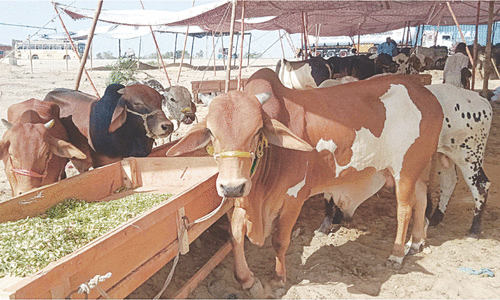
QUETTA: The Pakistani government came under heavy criticism from Shia Muslims and a leading rights watchdog on Wednesday after 29 people died in the worst attacks on the Shia minority for a year.
In a brutal assault, gunmen ordered Shiite pilgrims out of their bus, lined them up and assassinated 26 in a hail of gunfire in Mastung, a district 50 kilometres (30 miles) south of Quetta, the capital of Baluchistan province.
Gunmen then killed another three Shia on the outskirts of Quetta whom police said were going to collect relatives killed in the first incident. Both attacks occured on Tuesday.
Pakistan's Shia community declared three days of mourning and more than 3,500 faithful gathered in Quetta on Wednesday for a mass funeral, chanting slogans against the government and demanding protection.
Hundreds of women and children armed with placards and banners staged a protest after funeral prayers in the southwestern city, police said.
Markets closed in the city's Shia-dominated neighbourhoods and dozens of protestors blocked a main road by setting fire to tyres, police said.
Nazir Ahmad Kurd, another senior police officer, said 85 people had been taken into custody during a search operation to find the attackers.
“These people have been taken into custody for questioning. Those proven innocent will be released later,” Kurd told AFP.
Pakistan's independent rights watchdog said the killers had been emboldened by a persistent lack of action against sectarian militant groups, which have been implicated in thousands of deaths in past years.
Tuesday's attack “exposes once again the diminishing writ of the state,”warned the Human Rights Commission of Pakistan (HRCP).
“Continued sectarian bloodshed across the country... is a direct consequence of the authorities' perpetual failure to take note of sectarian killings in Quetta which have been going on for many years,” it added.
It was the deadliest attack on Shias in Pakistan since September 4, 2010 when a suicide bomber killed at least 57 people at a rally in Quetta.
“The government must move beyond rhetoric and its current casual and reactive approach to law and order challenges and start functioning as a responsible authority,” said the HRCP.
Balochistan has become an increasing flashpoint for sectarian violence between Pakistan's majority Sunni Muslims and minority Shias, who account for around a fifth of the country's 167 million population.













































Dear visitor, the comments section is undergoing an overhaul and will return soon.